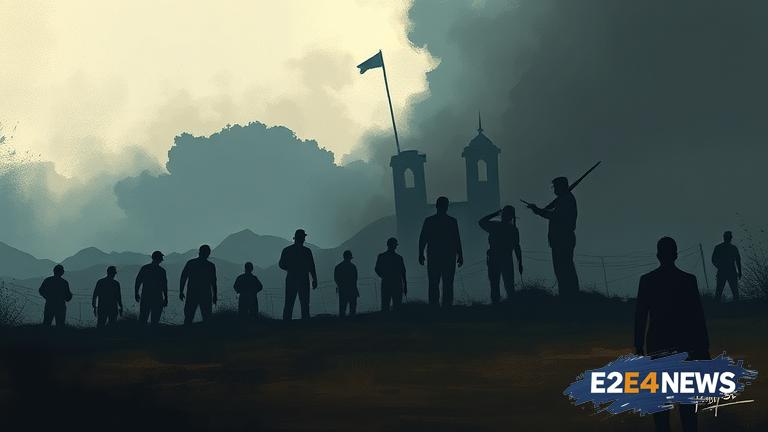The situation in Nicaragua continues to deteriorate, with the government’s authoritarian grip on power leading to a surge in human rights abuses. The latest incident involves the abduction of 28 citizens, who remain in forced disappearance, sparking widespread concern and outrage. The victims, including activists, journalists, and opposition leaders, were taken from their homes and workplaces by masked men, allegedly affiliated with the government. The Nicaraguan authorities have denied any involvement, but the pattern of disappearances and subsequent silence from the government suggests otherwise. The international community has condemned the actions, with human rights organizations and foreign governments calling for the immediate release of the abducted individuals. The crisis in Nicaragua has been ongoing since 2018, when protests against the government’s pension reform plans turned violent, resulting in the deaths of over 300 people. Since then, the government has cracked down on dissent, imposing strict controls on the media, civil society, and opposition groups. The forced disappearance of the 28 citizens is the latest in a long line of human rights abuses, which includes torture, arbitrary detention, and extrajudicial killings. The Nicaraguan government’s actions have been widely condemned, with the United Nations, the European Union, and the Organization of American States all expressing concern. The US government has also imposed sanctions on key Nicaraguan officials, citing human rights abuses and corruption. Despite the international pressure, the Nicaraguan government remains defiant, with President Daniel Ortega refusing to budge on his authoritarian stance. The opposition, meanwhile, remains fragmented and weakened, with many of its leaders either in exile or in prison. The economic situation in Nicaragua is also dire, with the country facing a severe crisis, characterized by high inflation, poverty, and unemployment. The crisis has led to a massive exodus of Nicaraguans, with thousands fleeing to neighboring countries, such as Costa Rica and Panama. The situation is further complicated by the COVID-19 pandemic, which has put a strain on the country’s already fragile healthcare system. The international community is calling for a peaceful resolution to the crisis, with a focus on dialogue, reconciliation, and respect for human rights. However, the Nicaraguan government’s actions suggest that it is unlikely to change its stance, at least in the short term. The forced disappearance of the 28 citizens is a stark reminder of the dangers faced by those who dare to challenge the government’s authority. The incident has sparked widespread protests and demonstrations, both within Nicaragua and internationally, with many calling for the government to be held accountable for its actions. The Nicaraguan government’s response to the crisis has been characterized by a lack of transparency and accountability, with many questions remaining unanswered. The whereabouts of the abducted citizens are still unknown, and their families are left to wonder if they will ever see their loved ones again. The incident has also highlighted the need for greater international pressure on the Nicaraguan government, with many calling for tougher sanctions and more robust diplomatic efforts. The situation in Nicaragua is a stark reminder of the importance of protecting human rights and promoting democracy, and the international community must continue to speak out against the government’s abuses.
